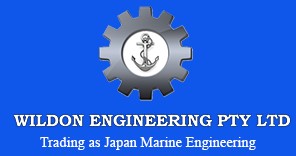Probable Causes of Extreme Oil Consumption in Marine Diesel Engines
Blog | April 30th, 2021Each engine goes through changes in oil consumption levels during its life expectancy. For instance, your diesel engine will go through a break-in period, in which it will burn through more oil. At that point, it will utilise a sensible measure of liquid for an all-inclusive time until the engine’s life begins to wind down. At the finish of the engine’s lifecycle, it will again devour more oil as it encounters more wear than previously. If your business engine is past its future, invest in another one to help increase your boat’s oil effectiveness.
Probable Causes of Extreme Oil Consumption in Marine Diesel Engines
Causes of High Oil Consumption
If engine age, oil thickness, preposterous burden and change intervals are not an issue, a mechanical culmination might be the reason for high oil consumption in case you’re operating under typical conditions. Your initial step is to sort out how the oil is being burned through. Troubleshooting inordinate engine oil consumption boils down to two potential issues — liquid holes and consumed oil.
Oil Leaks
Oil spills are quite possibly the most well-known issues that lead to high oil consumption and often bring about the second reason for over the top use — burning oil. Breaks happen when any segment, similar to a valve cover, isn’t fixed right.
Numerous holes are the consequence of debased parts, helpless seals and defective associations. Often, these holes aren’t regular in the manner in which they may leave a puddle on your carport or in the water. Then again, the holes happen inside the engine and consume off. In this way, don’t expect that not seeing puddles implies you’re free. Indications of oil spills include a smoking engine, the smell of consumed oil and dashboard warning lights. A few causes of oil spills include:
Harmed Gaskets or Seals
Oil can leak through worn driving rod seals and gaskets, causing you to need to top up the oil level continually. Maybe than wasting the oil, you can eliminate the issue to set aside time and cash in the since quite a while ago run. At the point when you begin to see you’re using more liquid than expected, supplant the harmed seals and gaskets.
An Old-Engine
The future of a marine diesel engine is around 5,000 hours under standard operating conditions. At the point when an engine is in great shape, it will request minimal measure of oil since it has new and strong parts.
Engineered Fluid
The engineered liquid is not the same as regular oil, and it at times makes a superior showing of lubricating certain parts. Nonetheless, manufactured oil’s recipe may make it leak through more modest openings all the more without any problem.
More seasoned marine diesel engines with failing parts like seals and gaskets can bring about higher engineered oil consumption. If you change to ordinary liquid, it can help forestall spills. Know that another engine shouldn’t utilise engineered because it will not permit the liner gaskets, bearings and rings to sit well.
Optimized by NetwizardSEO.com.au
Recent Posts
- Yanmar Marine Compressors: Applications in Engine Starts, Valves, and Safety Systems
- Water vs Oil in Stern Tube Bearings: The Cost & ESG Truth Shipowners Can’t Ignore
- Yanmar Turbochargers: How Correct Spec-Matching Supports Lower SFOC and Prevents Surge
- Yanmar Diesel Generators: Planned vs Predictive Maintenance Strategies for Remote Operations
- Mareflex SOLAS Marine Tapes: Safety Applications on Marine Vessels
- Yanmar Propulsion Systems: FPP vs CPP Propellers for 6EY and 6N Series Fuel Efficiency
- Mitsubishi K.K. Purifier Separator: The Key to Cleaner Fuel and Smoother Operations
- Kemel Air Seal Retrofits: Leak-Free Stern Tube Seals and Reduced Lube-Oil Risk
- Yanmar Auxiliary Generators: Sizing for Reefers, Hotel Loads, and Dynamic Positioning Systems
- Water Lubricated Stern Tube Bearing (EVR): Proven Technology for Smooth and Quiet Operations
